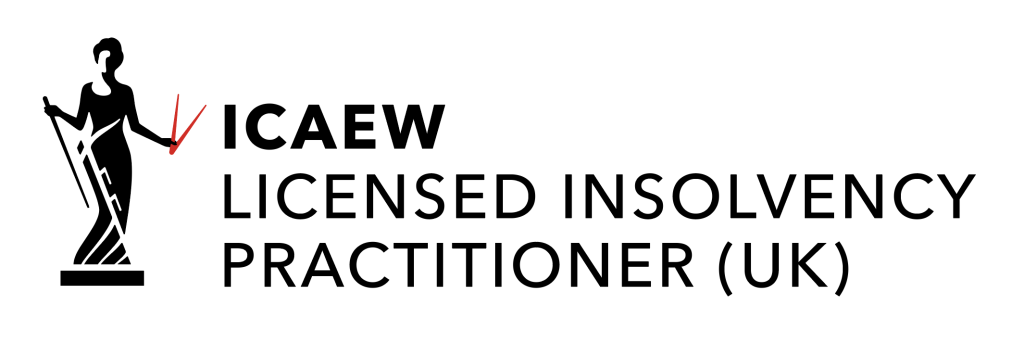Complete UK Insolvency & Liquidation Glossary
Your essential guide to understanding insolvency, liquidation and bankruptcy terminology in England and Wales
Anderson Brookes Insolvency Practitioners help directors close limited companies with debt quickly, legally and with expert guidance every step of the way.
Book a Free Consultation
A
Administration
A formal insolvency procedure where a licensed practitioner takes control of a company to rescue it or achieve better outcomes for creditors. The company gains court protection whilst options are explored.
Administrative Receiver
A person appointed by secured creditors to recover debts by selling company assets. Largely phased out under the Enterprise Act 2002 but still applies to older security agreements.
Administrator
A licensed insolvency practitioner appointed to manage company affairs during administration proceedings.
Annulment
The cancellation of a bankruptcy order, typically due to full debt repayment or procedural errors in the original order.
Assets
Everything owned by an individual or company, including property, vehicles, bank accounts, investments and money owed by others.
B
Bailiff
Court-authorised enforcement agents who collect debts or seize assets on behalf of creditors, following strict legal procedures.
Bankruptcy
Legal process for individuals unable to pay their debts. A court order transfers their assets to a trustee who sells them to repay creditors.
Bankruptcy Order
Court order declaring someone bankrupt, removing control of their assets which are then realised to pay creditors.
Bankruptcy Petition
Formal court application requesting bankruptcy proceedings, made by creditors or the debtor themselves.
Bond
Insurance cover required by insolvency practitioners when handling insolvency cases, paid from the insolvent estate.
Book Debt
Money owed to businesses for goods or services already provided – these debts count as company assets.
C
Charge
Legal security interest over assets securing debt repayment, similar to a mortgage on property.
Charging Order
Court order restricting asset disposal and giving payment priority over other creditors after obtaining judgment.
Company Voluntary Arrangement (CVA)
Legally binding agreement between an insolvent company and creditors to repay debts over time whilst continuing to trade.
Compulsory Liquidation
Court-ordered company closure, usually following a creditor’s winding-up petition due to unpaid debts.
Composition
Agreement where creditors accept reduced payments in full settlement of larger debts.
Contributory
Company shareholders liable to contribute towards debts if their shares aren’t fully paid up.
County Court Judgement (CCJ)
Court order requiring debt repayment within specified timeframes. Unpaid CCJs appear on credit files for six years.
Creditor
Individual, company or organisation owed money by a debtor.
Creditors’ Meeting
Formal gathering where creditors vote on insolvency matters including liquidator appointments.
Creditors’ Voluntary Liquidation (CVL)
Most common liquidation type where insolvent company directors voluntarily close the business via shareholder resolution.
Credit Rating
Scoring system assessing repayment reliability. Insolvency events significantly impact credit ratings for six years.
D
Debenture
Legal document outlining loan terms, often secured against company assets through fixed or floating charges.
Debt Relief Order (DRO)
Low-cost insolvency solution for people with minimal assets, low income and debts under £30,000.
Default Notice
Formal warning giving debtors final opportunity to pay before legal action commences.
Discharge
Official release from bankruptcy restrictions and most debts, typically after 12 months.
Dissolution
Final removal of companies from the Companies House register, ending their legal existence.
Distraint
Legal power allowing certain creditors to seize and sell goods from business premises to recover debts.
Dividend (Insolvency)
Payment made to creditors from available funds during insolvency proceedings.
E
Equity
Property value remaining after deducting secured debts like mortgages. Joint owners typically split equity equally.
Estate (Bankruptcy)
All assets available for creditor distribution during bankruptcy proceedings.
F
Factoring
Financial service where companies sell unpaid invoices for immediate cash, with factors collecting debts and taking percentage fees.
Fixed Charge
Security over specific assets preventing their sale without creditor consent.
Floating Charge
Security over general company assets that may change during normal business operations, like stock or debtors.
Fraudulent Trading
Operating companies intending to defraud creditors – both criminal offence and civil liability for those involved.
Frozen Bank Account
Accounts blocked by banks following bankruptcy orders, as funds may form part of the bankruptcy estate.
G
Guarantee
Legal commitment to repay another party’s debt if they default on payments.
The Gazette
Official government publications where insolvency notices are legally advertised.
H
High Court Enforcement
Process using authorised officers to enforce judgments over £600, offering swift debt recovery through asset seizure.
Hire Purchase Agreement
Arrangement hiring goods with regular payments towards eventual ownership. Bankruptcy may terminate agreements requiring goods return.
I
Income Payments Agreement (IPA)
Monthly payments towards debts from surplus income during bankruptcy, lasting up to three years post-discharge.
Income Payments Order (IPO)
Court order mandating debt payments if IPA agreement cannot be reached.
Individual Insolvency Register
Public database showing personal insolvency details in England and Wales, searchable online.
Individual Voluntary Arrangement (IVA)
Formal agreement between individuals and creditors for reduced debt repayments, requiring 75% creditor approval by value.
Insolvency
Inability to pay debts when due or having liabilities exceeding assets.
Insolvency Act 1986
Primary UK legislation governing insolvency law and procedures.
Insolvency Practitioner (IP)
Licensed professional authorised to handle formal insolvency proceedings.
Insolvency Service
Government agency managing bankruptcy applications and investigating misconduct.
Interim Order
Court protection preventing legal action whilst voluntary arrangement proposals are considered.
J
Joint Liability
Where multiple parties are each responsible for entire debt amounts if other parties cannot pay.
L
Lien
Right to retain possession of assets or documents until debts are settled.
Liquidation
Process of selling company assets and distributing proceeds to creditors before formally closing the business.
Liquidator
Licensed practitioner appointed to wind up companies and distribute assets to creditors.
London Gazette
Official publication where statutory notices including insolvencies are published.
M
Members’ Voluntary Liquidation (MVL)
Solvent company closure where shareholders appoint liquidators to distribute assets after paying all debts.
Member (Company)
Registered company shareholder.
Mortgage
Security interest in property securing loan repayment, redeemable upon settling the debt.
N
Nil Tax Code (NT)
HMRC code preventing further income tax deductions from wages following bankruptcy orders.
Nominee
Licensed practitioner preparing voluntary arrangement proposals and creditor meetings.
O
Official Receiver (OR)
Government official handling bankruptcy and compulsory liquidation cases via the Insolvency Service.
Officer (Company)
Company director or secretary.
P
Preferential Creditor
Creditors with priority payment rights, typically employees owed wages or holiday pay.
Prescribed Part
Portion of floating charge realisations reserved for unsecured creditors in company insolvencies.
Phoenix Company
New company emerging from insolvent predecessor with similar assets and directors, subject to strict anti-abuse rules.
Proof of Debt
Form submitted by creditors claiming money owed during insolvency proceedings.
Provisional Liquidator
Court-appointed practitioner preserving company assets pending winding-up petition hearings.
Proxy
Person appointed to vote on behalf of creditors or shareholders at meetings.
R
Receiver
Person appointed to collect and sell assets for secured creditor benefit.
Receivership
Process where receivers are appointed to realise assets for secured creditors.
Redundancy
Employee’s statutory right to compensation when dismissed due to job elimination.
Remuneration
Fees and expenses paid to insolvency practitioners from estate funds.
Repossession
Lender reclaiming property due to mortgage payment defaults.
Reservation of Title
Contract clause allowing sellers to retain goods ownership until full payment.

S
Scheme of Arrangement
Statutory procedure enabling binding creditor compromises.
Secured Creditor
Creditor holding legal rights over specific assets as debt security.
Set-Off
Right to offset mutual debts between parties, settling net differences.
Shadow Director
Person whose instructions directors follow despite not being formally appointed.
Shareholder
Company owner holding shares representing ownership stakes.
Statement of Affairs
Document detailing assets, debts and creditors sworn by bankrupts or company officers.
Statutory Demand
Formal debt demand requiring payment within 21 days before bankruptcy or winding-up proceedings.
Supervisor
Practitioner implementing approved voluntary arrangements.
T
Trustee in Bankruptcy
Official or practitioner controlling bankrupt’s assets, realising them for creditor distribution.
U
Undischarged Bankrupt
Person still subject to bankruptcy restrictions before official discharge.
Unliquidated Claim
Damages claim with unspecified or undetermined value.
Unsecured Creditor
Creditor without security rights over debtor assets.
V
Validation Order
Court permission allowing company transactions after winding-up petition presentation.
Voluntary Liquidation
Company closure initiated by shareholder resolution rather than court order.
W
Winding-Up
Company liquidation process realising assets and distributing proceeds before closure.
Winding-Up Petition
Court application seeking compulsory company liquidation due to insolvency.
Wrongful Trading
Director liability for continuing business when insolvency was inevitable, causing additional creditor losses.
CVL Case Studies
Voluntary Company Liquidation Examples

CVL Case Study – Pub
John's Pub in the North West John faced debts of £70,000, mainly owed to HMRC. After failed attempts at payment arrangements, we helped him close the business through a CVL and minimise his personal exposure. We managed employee claims, creditor communication, and asset sale - providing a structured way forward.

CVL Case Study – Large FM Company
Facilities Management Firm, Midlands With turnover of £22m and unmanageable tax debt, the directors chose a CVL. We managed the entire process, ensuring creditors were repaid in an orderly way. The business was closed within weeks, protecting the directors from further risk.

CVL Case Study – Retailer
Clothing Boutique in Manchester The business had built up £45,000 in unpaid rent and HMRC arrears after a drop in footfall. With no realistic way to recover, the owner contacted us for advice. We supported a voluntary liquidation, managed creditor notices, handled employee redundancies, and helped the director draw a line under the business legally and quickly.

CVL Case Study – Construction Company
Joinery Contractor, Burnley With materials debt and cashflow issues totalling over £120,000, this Burnley-based firm could no longer trade safely. We stepped in to close the company via CVL, arranged asset valuations, handled subcontractor queries, and supported the directors with their legal responsibilities, giving them clarity and peace of mind.
Frequently Asked Questions
Have a company in England or Wales? These are your limited company business debt, liquidation and insolvency questions answered.
Can I liquidate the company myself?
No. Only a Licensed Insolvency Practitioner can place a company into liquidation.
What are the advantages of liquidation?
Placing the company into liquidation will stop debt enforcement, including bailiff action. The directors are usually in control of the process and can choose the liquidator. In most cases, it can be completed within two weeks without needing to attend any formal meetings. Company debts are usually written off unless they are personally guaranteed. Directors who act responsibly can show they handled the company’s financial affairs properly.
Is liquidation the same as dissolving the company?
No. Only a Licensed Insolvency Practitioner can liquidate a company. A director can apply to dissolve a company through Companies House, but only if certain conditions are met. If the company is insolvent, it may be a criminal offence to apply for strike-off. Always take professional advice before doing this. If you think you might qualify for dissolution, call us and we’ll explain the process.
What is compulsory liquidation?
This happens when a creditor applies to court to wind up a company due to non-payment of a debt over £750. If the court agrees, the company is placed into compulsory liquidation. This often leads to more problems for directors, who may find it harder to defend against accusations such as wrongful trading. It is usually better to start the process voluntarily.
How much will it cost to liquidate my company?
It depends on your situation. In most cases, the directors do not pay the costs personally. The liquidation is paid for using company assets. We are a small practice based in Bolton with low overheads, so we offer some of the most competitive fees in the UK. All costs will be confirmed in writing before we proceed.
What is a phoenix company?
This is a new limited company that starts after an old one has gone into liquidation. It allows the business to carry on with the profitable parts of the original company. There are strict rules about reusing a company name, so it’s important to get advice before going ahead.
What is a Members’ Voluntary Liquidation (MVL)?
An MVL is used when a company is still solvent and can repay all its debts. It may be the right option if directors want to retire or step away from the business. MVLs can offer tax benefits, but they must be handled by a Licensed Insolvency Practitioner.
A frequently asked question surrounding your service
A detailed answer to provide information about your business, build trust with potential clients, and help convince the visitor that you are a good fit for them.
What is wrongful trading?
If a company is insolvent and directors carry on trading, they may be accused of wrongful trading. A director could be held personally liable if they knew, or should have known, that the company couldn’t avoid liquidation and did not act to reduce losses. Acting early helps reduce this risk.
Do you only offer formal insolvency advice?
No. Most people who contact us do not need formal insolvency procedures. We help explore all the options, including self-help and informal solutions. If formal action is needed, our Licensed Insolvency Practitioner can act for you directly.
Testimonials
Our clients praise our professionalism, reliability, and the exceptional support we provide during challenging times, helping thousands of company directors through insolvency, liquidation, and business debt solutions.


